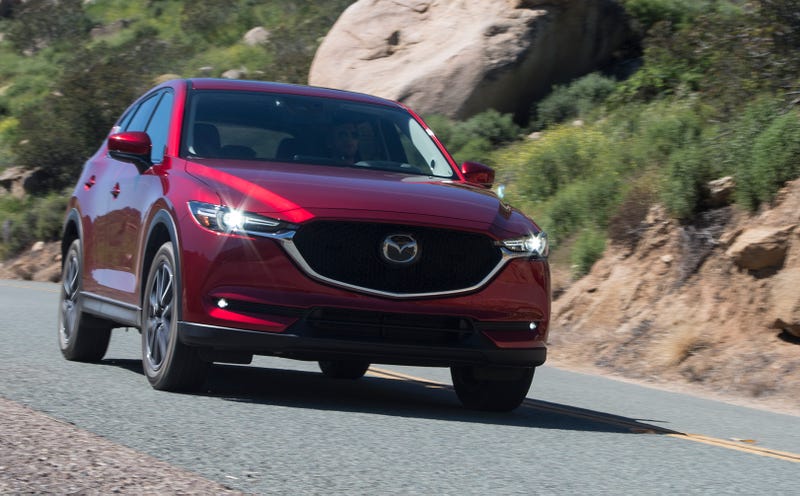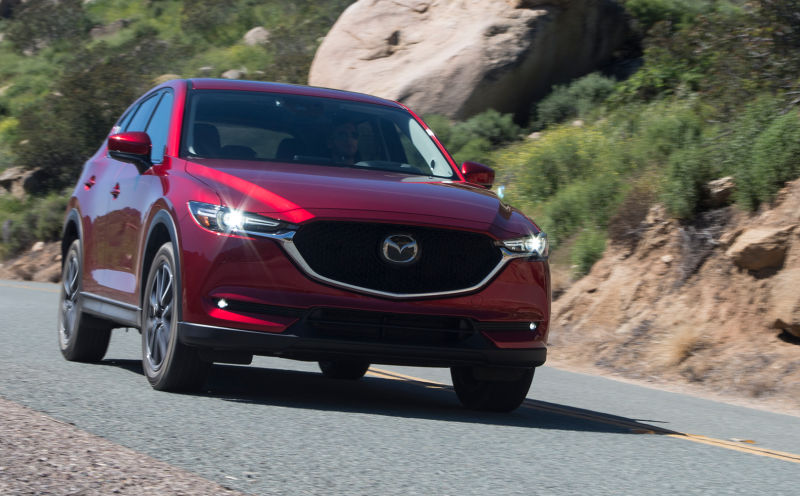
As Jalopnik’s resident car buying expert and professional car shopper, I get emails. Lots of emails. I’ve decided to pick a few questions and try to help out. This week we are talking about buyer priorities, negotiating extended warranties on used cars, and performance ratios among trims.
First up, do most people really care about the “performance” of their new car? Should they? A reader writes:
“I was car shopping the other day for a crossover and I told the salesperson I would be test driving both the CR-V and the CX-5. The Honda sales guy, in an attempt to paint his product in a better light, said…’ Well, the Honda has a turbo motor and the Mazda doesn’t so it’s faster.’
Never mind the fact that both cars make similar horsepower numbers and their acceleration times aren’t far apart, this got me thinking. Do people shopping for regular cars even care about this stuff?”
As someone who used to pore over quarter-mile and 0-60 mph times in the magazines long before reading about cars on the internet was a thing, even I’ll admit that most buyers really don’t care all that much of one car can hit 60 mph in seven seconds flat and the other car does it in 7.2 seconds. Obviously, folks that buy performance cars want to know these things, but let’s be real—usually that buyer already knows the spec sheets before they walk into a dealership. The vast majority of car buyers look at style, features and price, in varying degrees of priority.
Car buying is emotional and what a brand or vehicle “feels like,” or the image it projects, also plays a factor in the decision making process. To sell a car based purely on facts isn’t going to land you any customers.
Advertisement
And if you’re one of those people who can’t decide between one car and another and you’re sweating over quarter-mile times or whatever, know this: drive both and buy whatever you like best. Don’t let the paper stuff sway you too much.
Next up, which car has the best ratio of performance variants to regular versions?
“I have a theory. Well, more of a hypothesis I guess, and I’m hoping you have some clever way of testing it.
Here it is: the ratio of “performance” variant to base is highest for the G-class. I feel like I see 100 Civics for every Si, and ten of those for every R. Fifty E350 for every E63. A million 320is for every M3. A thousand F-150s for every Raptor.
But seems that about every other G-class is a G63 AMG. Why is that? Is there any other model that seems as close to 1:1 between the expensive version to the base?
Advertisement
This is an interesting thought exercise, and speaking unscientifically, it does seem like most Mercedes G-wagens that you see on the street are the full tilt AMG versions. Of course, people buy them not because they need AMG performance out of a G-wagon, but since often those cars appeal to a certain buyer that likes to project an image of wealth, they want to project to the world that they were able to buy the most expensive one.
It also has to do with the fact that not many G-wagens are made to begin with, compared to a Civic or an F-150 or whatever, so the ratios will obviously favor the car with the smaller production numbers.
Advertisement
I’m not really sure which model would have the closest ratio of regular versions to performance versions. Naturally, we would have to take the exotic cars like the Lamborghinis and Ferraris out of the picture since every car is a performance version of some sort. However, if I were to venture a guess I would say that I think there are more higher-performance Tesla Model S cars roaming around than ones with the smaller batteries.
And finally, would a dealer be more flexible on a used car price if you buy the extended warranty?
“I am in the market for either a 2016-2017 Audi SQ5 or Jeep GC Summit in the $35-$40k range. While I plan to get an independent PPI no matter what I buy, I’d prefer a CPO since an extended warranty is included. As I understand it, warranties are a high-profit segment for dealers, so it seems there might be an opportunity add value to the deal by negotiating for more warranty coverage, rather than a lower price. That said, is it reasonable to ask the Audi or Jeep dealer to extend the warranty for 1-2 years if I agree to pay their list price for the vehicle?”
Advertisement
So theoretically, this could work. However, warranties that have significant coverage don’t cost a few hundred dollars, they cost a few thousand. Now you may be able to haggle a $3,000 warranty down to $2,200. But if you are going to bake that into the sale price of a used car, the dealer would need to have $2200 of margin to work within their advertised price, which they often don’t. No matter how you slice it, the typical margin for negotiation on a used car under $60,000 is in the hundreds of dollars. There may be a few instances where someone knocks a grand or so off. I would suggest you focus on the car cost first, then the warranty.
Got a car buying conundrum that you need some assistance with? Email me at tom.mcparland@jalopnik.com!













